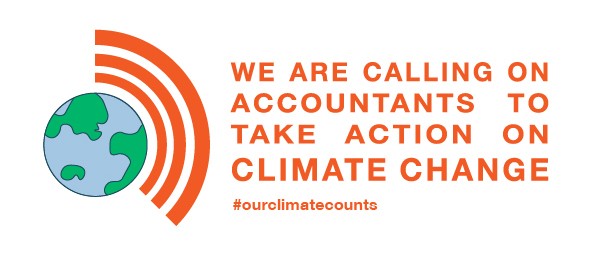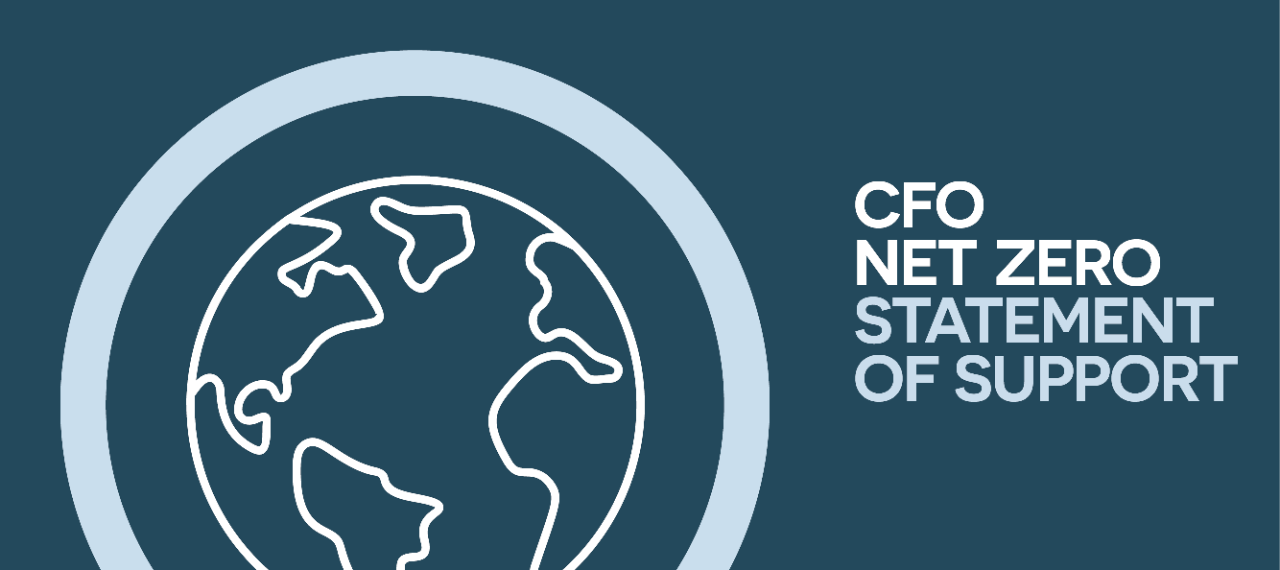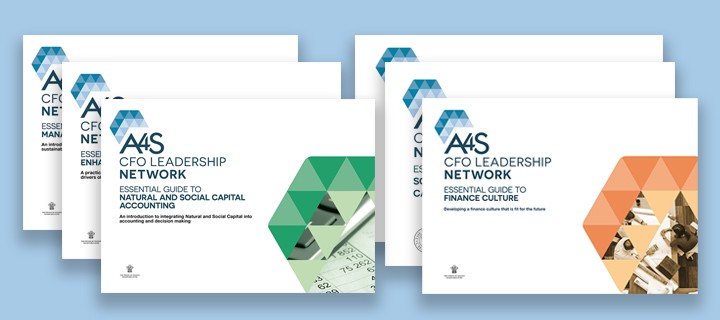CALL TO ACTION IN RESPONSE TO CLIMATE CHANGE
About the statement
13 chief executives representing 14 accounting bodies have signed a call to action in response to climate change. The bodies, who are all members of A4S’s Accounting Bodies Network, represent over 2.5 million accountants and students globally.
The statement includes eight actions which accountants are called upon to take in response to the climate emergency. It also includes commitments from the bodies themselves in support of their members. The call to action highlights that climate change represents an economic, social and business risk – a risk that accountants from across the world must take action on.
You can follow developments and join in the conversation online using #ourclimatecounts

CALL TO ACTION IN RESPONSE TO CLIMATE CHANGE
A STATEMENT FROM THE CHIEF EXECUTIVES OF GLOBAL ACCOUNTANCY BODIES TO THE ACCOUNTANCY PROFESSION
We are the chief executives of the global professional accountancy bodies listed below and members of The Prince of Wales’s Accounting for Sustainability Project (A4S) Accounting Bodies Network. We represent over 2.5 million professional accountants and students across 179 countries. We call upon the accountancy profession to act now to help the organizations they work with respond to climate change with the urgency and scale required.
The impacts of climate change are already being felt throughout the world and urgent action is needed to limit its negative effects. With climate change come potentially profound negative economic consequences including impacts on production, financial stability, living standards and employment, and more widely on social cohesion and political stability. We recognize that mitigation and adaptation will rely, to a very substantial degree, on both macro and micro economic policies and the associated market mechanisms into which accounting practices are embedded. Climate change nevertheless presents transformation opportunities.
Role of the accountancy profession
The accountancy profession can play a significant role in achieving both climate change mitigation and adaptation at individual business, industry sector and economy-wide levels. We acknowledge that these are multifaceted challenges and will work with other professions and stakeholders in pursuit of solutions.
Our profession can contribute positively. Professional accountants have a responsibility to act in the public interest. Many argue that this responsibility must now include helping organizations to address climate change.
We frequently use our skills and expertise to help deliver meaningful change and we are now applying these to the uncharted challenges that climate change presents. Identifying material risks with financial consequences and providing the information needed to make decisions are the domain of the accountancy profession. This includes providing relevant financial and strategic analysis, disclosure, scenario analysis and assurance to help organizations generate and preserve value. We can therefore be influential in driving sustainable behaviours. Acting together with organizations of all types, we can help to deliver environmental, social and economic sustainability.
Better disclosure will facilitate more informed decision making while enabling market forces to drive efficient allocation of capital and support a smooth and just transition to a net zero greenhouse gas emissions economy. Our profession can play an important role in ensuring transparency and appropriate disclosure around climate related risks and opportunities, which in turn will help to maintain financial stability.
Support for a favourable policy and regulatory context
The regulatory framework in any jurisdiction needs to provide stability and future certainty to enable the necessary transition. To encourage and achieve business investment in technology and innovation, decarbonization strategies, budgets and targets must be established to allow for effective planning. Policy certainty is essential if we are to attain motivating action across the private sector.
Both transition to net zero emissions and climate change adaptation measures are clearly linked to other areas of public policy, especially those directed at economic development. Our organizations advocate, and will support, a more integrated approach to policy development so that it is consistent with net zero emissions and climate change adaptation goals.
With a vital role to play, professional accountants should commit to:
- Provide sound advice and services as organizations, capital markets, and governments develop and implement plans for climate change mitigation and adaptation.
- Use and implement existing and developing reporting frameworks such as those from the International Integrated Reporting Council and the Task Force on Climate-related Financial Disclosures.
- Contribute to the efforts of the organizations they work with to integrate climate change risk into organizational strategy, finance, operations, and communications.
- Support sustainable decision making within the organizations they work for by allocating budgets and resources, and by developing high quality and timely information and insights through measurement and disclosure, built on robust and transparent accounting systems.
As the chief executives of the global professional accountancy bodies, we commit to:
- Provide our members with the training, support and infrastructure they need to apply their skills to the challenge.
- Support relevant market-based policy initiatives and incentives, consistent and well-considered regulation, and more useful disclosure.
- Provide sound advice to help governments to create the policy and regulatory infrastructure necessary for a just transition to a net zero carbon economy.
As influential members of every sector of the economy, professional accountants are uniquely positioned to help effect meaningful and positive change in a collective effort.
The accountancy profession has a crucial role to play in addressing climate change. We call upon our members to play their part.
Who has signed the statement?
- Andrew Hunter, CEO, CPA Australia
- Barry Dempsey, Chief Executive, Chartered Accountants Ireland
- Barry Melancon, CEO, Association of International Certified Professional Accountants
- Christine Lundberg Larsen, CEO, Regnskap Norge/Accounting Norway
- Francesca Maione, CEO, CNDCEC - Consiglio Nazionale dei Dottori commercialistie degli Esperti Contabili
- Helen Brand OBE, Chief Executive, ACCA
- J Bruce Cartwright, Chief Executive, ICAS
- Joy Thomas, President and CEO, CPA Canada
- Klaus-Peter Naumann, CEO, Institut der Wirtschaftsprüfer in Deutschland e.V. (IDW)
- Margaret Chan, Chief Executive & Registrar, Hong Kong Institute of Certified Public Accountants
- Mark Farrar, CEO, Association of Accounting Technicians
- Masahiko Tezuka, Chairman and President, The Japanese Institute of Certified Public Accountants
- Michael Izza, Chief Executive, ICAEW
- Rick Ellis, CEO, Chartered Accountants Australia and New Zealand
Supported by:
- Olivier Boutellis-Taft, CEO, Accountancy Europe
- Kevin Dancey, CEO, International Federation of Accountants



